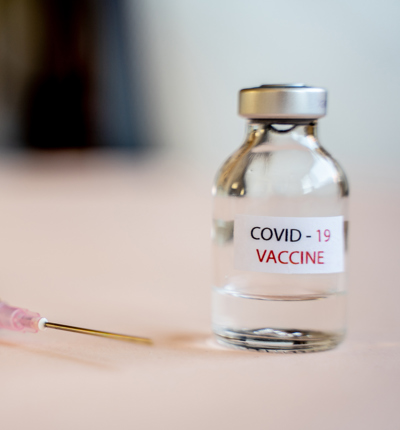
The Vaccine Damage Payment Scheme is outdated and urgently needs reform
Sarah Moore highlights the need for a review of the Vaccine Damages Payment Scheme (VDPS) following news that the AstraZeneca vaccine can cause rare blood clotting syndrome.
Posted on 13 May 2024
The VDPS was set up in 1979 as a temporary measure to provide a lump-sum ex gratia payment to children who had become severely disabled due to a vaccination. The scheme was subsequently extended to include adults and individuals who died as a result of vaccination.
To be eligible for a payment, applicants must meet a 60 per cent disability threshold, which is based upon outdated concepts of industrial injury and disablement – pivoted, for example, on the basis that an above knee amputation constitutes 60 per cent disablement, which medical assessors must then apply to the large range of neurological and complex injuries with which applicants to the VDPS now present. This 60 per cent cut-off point serves to prevent some people who are still severely affected by injuries that can have lifelong consequences from accessing compensation through the scheme.
Even for those who do manage to fulfil the criteria, the lump-sum payment of £120,000 is not always adequate for applicants to be able to receive the care and/or treatment that they need. Particularly in circumstances where a main wage earner requires 24 hour care and support as a result of injury for example, or has died, leaving a young family behind for example.
Earlier this year, AstraZeneca admitted for the first time in a court document that its COVID-19 vaccine can “in very rare cases, cause TTS”. Thrombocytopenia Syndrome (TTS) is a rare syndrome characterised by blood clotting and insufficiency of platelets, which when it occurs as a result of vaccination, is also referred to as Vaccine Induced Immune Thrombosis with Thrombocytopenia or VITT.
MP Sir Jeremy Wright recently discussed the inadequacy of the VDPS in an Instagram reel. He noted that the “right thing for the government to do” would be to ensure that they are able to settle cases where people have been injured by vaccines, and that there are schemes in place to look after them.
Although the government heavily encouraged the public to take the vaccine, there is now little protection offered to those injured or bereaved because of it. An individual with a 59 per cent disability under the VDPS would have no other route to financial compensation other than through the courts, and even for those in receipt of a VDPS payment- it is often wholly inadequate to fund the round-the-clock care needs of someone with a severe and permanent brain injury; or to make up for the financial impact to a household of losing a main wage earner.
The pandemic demonstrated that vaccination has a crucial role to play in public health policy, in keeping us safe and in keeping our schools and businesses open: However, voluntary vaccination programmes, of the type we have in the UK, are only going to work if people are willing to step up for vaccination. For that reason it is crucial that the Government fulfils its part of the “social pact” by ensuring that, in the rare event, that someone does suffer a life changing injury or death as a result of vaccination there is a reformed VDPS available through which the injured and bereaved can be provided with meaningful financial support.




